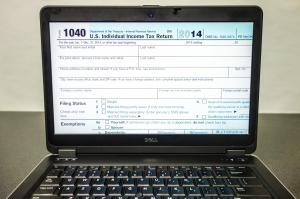While most eligible Americans have already received their coronavirus stimulus checks, those still waiting can now call the Internal Revenue Service (IRS) for updates. After launching two online portals – the non-filers tool and the “Get My Payment Now” tool – to aid in the distribution of relief payments, the IRS announced Monday that it had launched an additional way for Americans to get answers regarding their economic impact payments.
In the announcement, the agency said that it had begun adding “3,500 telephone representatives to answer some of the most common questions” regarding stimulus checks. The announcement added that the IRS plans to bring back “additional assistors as state and local advisories permit.” Americans can call the agency at the following number, 1-800-919-9835. According to the IRS, which said “telephone assistance and other services will remain limited,” those who call will first be met with an automated message providing answers to the most common questions regarding economic impact payments. For those needing further assistance, there will be an option at the conclusion of the message to talk to a telephone representative.
Videos by PopCulture.com
Still, the IRS directs people to the Economic Impact Payment Information Center on its website, available by clicking here. There, answers are provided to frequently asked questions covering a variety of topics – “EIP Eligibility and General Information,” “Requesting My Economic Impact Payment,” “Calculating My Economic Impact Payment,” “Receiving My Payment,” “Non-Filer Tool,” “Social Security, Railroad Retirement and Department of Veteran Affairs benefit recipients,” and “More About the Economic Impact Payment.” The IRS also encourages people to utilize the previously-launched non-filers tool, which was created for those who don’t typically file a tax return, and the “Get My Payment Tool,” which allows eligible Americans to tracks their coronavirus stimulus check.
The economic impact payments are part of the $2 trillion relief package known as the CARES Act, which was signed into law by President Donald Trump in late March. As part of the bill, most American households will receive a payment totaling $1,200 for individuals who earn less than $75,000 annual, $2,400 for couples who earn less than $150,0000, and $500 for every child under the age of 17. Those numbers begin to decrease as income level increases.
The majority of the payments have already been received by eligible Americans via direct deposit, and the IRS has already begun mailing out the first rounds of paper checks. It was confirmed earlier this week that approximately 4 million Americans would be receiving their payments via prepaid debit cards.



